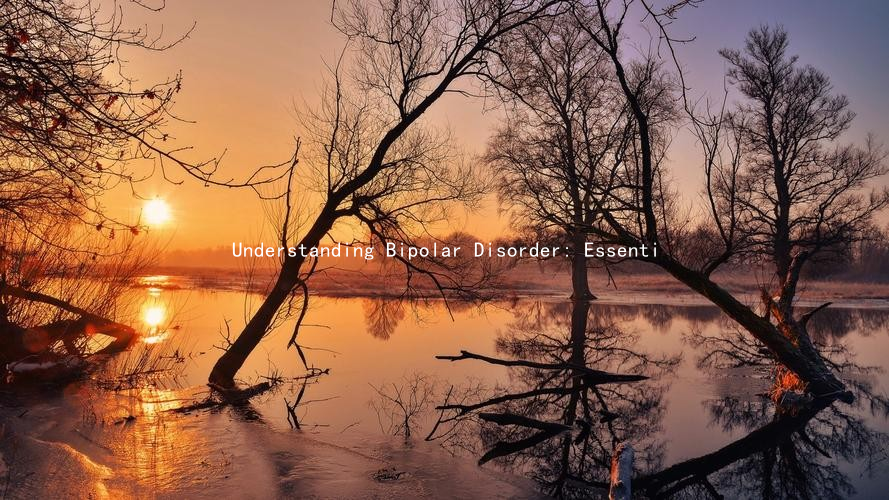Understanding Bipolar Disorder: Essential Relationship Tips for Couples
Understanding Bipolar Disorder: Essential Relationship Tips for Couples
Bipolar disorder is a mental health condition that affects millions of people around the world. It is characterized by extreme mood swings, ranging from manic highs to depressive lows. Navigating a relationship where one partner has bipolar disorder can be challenging, but with understanding and communication, couples can build a strong and fulfilling partnership. Here are some essential relationship tips for couples dealing with bipolar disorder.
1. Educate Yourself About Bipolar Disorder
Understanding the symptoms and effects of bipolar disorder is crucial for both partners. This knowledge can foster empathy and patience. Resources such as books, support groups, and reputable websites can provide valuable insights into the condition. Talk openly about what you learn with each other, as this can help normalize the experience and reduce stigma.
2. Open Communication is Key
Encourage honest and open communication about feelings, struggles, and needs. The partner with bipolar disorder may experience changes that can be hard to express, and their partner should feel comfortable discussing how they are affected too. Establishing a routine for check-ins can provide a safe space for both partners to share their thoughts and emotions.
3. Establish a Crisis Plan
Mood episodes can be unpredictable. Having a crisis plan in place can help both partners feel prepared during difficult times. This plan should include warning signs of an impending mood episode, coping mechanisms that work for both partners, and contacts for professional support. Knowing that there’s a plan can bring a sense of security to the relationship.
4. Practice Patience and Understanding
It’s important to recognize that mood swings are part of the disorder and not a reflection of the partner’s feelings toward you. During manic phases, the person might be overly energetic and engaging, while during depressive phases, they may withdraw or seem uninterested. Practicing patience and giving your partner the space they need during difficult times can help maintain emotional balance in the relationship.
5. Encourage Professional Help
Encouraging your partner to seek therapy or medication can benefit both partners. A mental health professional can provide tools and strategies to manage bipolar disorder more effectively. Participate in therapy together, if possible, to strengthen your understanding and communication as a couple.

6. Set Healthy Boundaries
Healthy boundaries are essential in any relationship but can be particularly important when one partner has bipolar disorder. Define what behaviors are acceptable and which ones are not. Discuss how to handle stressful situations and disagreements calmly. Respecting boundaries will help both partners feel secure and valued.
7. Focus on Self-Care
Self-care is vital for both partners. The partner without bipolar disorder should take time for their own mental health, engaging in activities that bring joy and reducing stress. The partner with bipolar disorder should also prioritize their self-care, managing stress, sticking to treatment, and finding healthy outlets for emotions. Healthy individuals contribute to a healthy relationship.
8. Celebrate the Good Times
While challenges may arise, it’s essential to celebrate the good times together. Find moments of joy and connection, whether it’s through shared hobbies, date nights, or simple acts of kindness. Celebrating achievements, whether big or small, can strengthen the bond between partners and create positive memories.
9. Be Flexible
Flexibility is crucial when dealing with the uncertainties of bipolar disorder. Schedules may shift based on your partners mood or energy levels, and plans may need to change last minute. Adapting to these changes with a positive attitude can reduce frustration and help maintain harmony in the relationship.
10. Foster a Support Network
Encourage the development of a solid support network for both partners. Friends, family members, and support groups can provide additional understanding and help during tough times. Knowing that you both have people to turn to can alleviate stress and bring comfort.
In conclusion, a relationship where one partner has bipolar disorder can thrive with the right strategies in place. By educating yourselves, communicating openly, and prioritizing patience and understanding, you can create a robust partnership. Remember that while challenges may arise, love, commitment, and empathy can help you weather any storm together.





